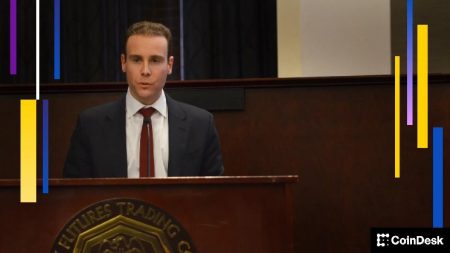Bombay High Court Affirms CoinSwitch’s Right to Recover Funds in Landmark WazirX Hack Ruling
Precedent-Setting Decision Strengthens Exchange Accountability in India’s Evolving Crypto Landscape
In a watershed ruling that could reshape the contours of cryptocurrency regulation in India, the Bombay High Court has upheld CoinSwitch’s right to recover approximately ₹62 crore in digital assets lost during the catastrophic WazirX hack of 2024. The decision, handed down by Justice Sundaresan on October 9, 2025, reinforces exchange accountability and establishes a significant precedent for investor protection in India’s rapidly maturing digital asset ecosystem.
The court’s dismissal of WazirX’s parent company Zanmai Labs’ challenge to earlier arbitration orders sends a clear message to cryptocurrency platforms operating in India: robust security and transparent custodial practices are not merely optional but legally enforceable requirements. For the thousands of Indian investors navigating the complex waters of digital asset investments, the ruling represents a crucial step toward greater institutional accountability in a market historically plagued by regulatory uncertainty.
The Aftermath of India’s Largest Cryptocurrency Breach
The July 2024 cyber-attack on WazirX stands as one of the most devastating security breaches in India’s cryptocurrency history, with total losses exceeding $234 million in various ERC-20 tokens. According to cybersecurity experts familiar with the case, hackers exploited critical vulnerabilities in WazirX’s multi-signature wallet infrastructure, reportedly managed by digital asset custody provider Liminal. Subsequent investigations linked the sophisticated attack to the notorious Lazarus Group, a cybercrime syndicate with alleged ties to North Korea.
“The WazirX breach exposed fundamental weaknesses in how some exchanges approach security architecture,” explained Rajesh Mehra, cybersecurity analyst at Digital Fortress India. “Multi-signature solutions are only as strong as their implementation and ongoing monitoring protocols.”
CoinSwitch, one of WazirX’s significant institutional partners, reportedly suffered devastating losses amounting to approximately 40.5% of its assets during the hack. The exchange moved decisively, initiating arbitration proceedings through its affiliate, Nextgendev Solutions, seeking to recover funds that had been frozen on the WazirX platform in the wake of the attack.
Court Rejects WazirX’s Force Majeure Defense
In what legal observers describe as a pivotal determination, Justice Sundaresan firmly rejected WazirX’s attempt to invoke force majeure provisions to shield itself from liability. WazirX had constructed a defense around the unpredictable nature of the cyber-attack and pointed to ongoing restructuring processes in Singapore that it claimed were designed to socialize losses across platform users.
“The court recognizes the exceptional circumstances surrounding the WazirX cyber-attack and affirms CoinSwitch’s claim to recover its assets,” the judgment stated, emphasizing the need for robust custodial safeguards in cryptocurrency exchanges.
The court found WazirX’s arguments contained “ambiguities and lack of clarity” regarding its custodial responsibilities and highlighted inconsistencies in the platform’s terms of service regarding asset protection guarantees. Earlier tribunal rulings in December 2024 and March 2025 had directed WazirX to either provide bank guarantees or deposit equivalent funds in escrow to protect CoinSwitch’s claim—directives that WazirX unsuccessfully sought to overturn.
Establishing Legal Frameworks for Cryptocurrency Protection
Legal experts view the ruling as a significant milestone in the development of a coherent legal framework for cryptocurrency disputes in India, particularly concerning exchange liability and custodial responsibility.
“This decision represents judicial recognition that exchanges cannot simply disclaim responsibility for security breaches through boilerplate terms of service,” said Priya Sharma, a partner specializing in fintech regulation at Sharma & Associates. “The court has essentially determined that custodial exchanges bear meaningful responsibility for safeguarding user assets, regardless of the technological complexities involved.”
The judgment comes at a crucial juncture for India’s cryptocurrency sector, which has weathered regulatory uncertainty and security challenges while experiencing substantial growth. The Reserve Bank of India has been developing a comprehensive regulatory framework for digital assets, and industry observers suggest this ruling may influence forthcoming regulations regarding minimum security standards and liability provisions for exchanges operating in the country.
Implications for Investors and the Future of Indian Crypto
For Indian cryptocurrency investors, the ruling underscores the importance of conducting thorough due diligence when selecting exchange platforms. Security measures, insurance provisions, and custody arrangements should now feature prominently in investors’ evaluation criteria alongside more traditional metrics like trading fees and liquidity.
“This case should serve as a wake-up call for both exchanges and investors,” noted Vikram Chandra, founder of Blockchain Education Initiative India. “Exchanges must prioritize security as a core business function rather than an afterthought, while investors need to understand the custodial arrangements of platforms they entrust with their digital assets.”
The broader implications of the ruling extend beyond CoinSwitch and WazirX, potentially influencing how exchanges structure their operations and security protocols across India. Industry insiders suggest the decision could accelerate the adoption of advanced security measures, including enhanced multi-signature solutions, comprehensive insurance coverage, and regular third-party security audits.
A Catalyst for Industry Maturation and Regulatory Development
As CoinSwitch continues its recovery efforts, the significance of the Bombay High Court’s decision reverberates throughout India’s cryptocurrency landscape. By establishing clear judicial precedent regarding exchange accountability, the ruling represents a pivotal moment in the maturation of India’s digital asset ecosystem.
“What we’re witnessing is the natural evolution of a maturing market,” explained Arun Jaitley Professor of Financial Law at Delhi University, Dr. Meenakshi Verma. “As cryptocurrency transitions from a niche interest to a mainstream asset class, legal frameworks must evolve to provide appropriate protection while allowing for innovation. This ruling represents an important step in that journey.”
For India’s estimated 20 million cryptocurrency users, the decision signals that judicial remedies are available when exchanges fail to implement adequate security measures. As the country continues to develop its regulatory approach to digital assets, the Bombay High Court has made clear that investor protection remains a paramount concern, establishing expectations that will likely shape the industry for years to come.
As one blockchain legal expert summarized in the court’s aftermath: “This ruling signals a maturing legal framework for cryptocurrency in India. Exchanges must now ensure robust security measures and transparent custodial practices to protect investors’ assets.”










![Standard Chartered Cuts Bitcoin and Ethereum Forecasts, Predicts Bottom by [Date] at $[Price]](https://commstrader.com/wp-content/uploads/2026/02/3f2a2e40b5435ea86ade84c25b7ee76c02e7fe3c-450x300.jpg)



